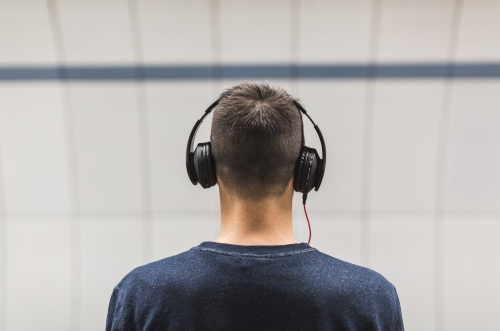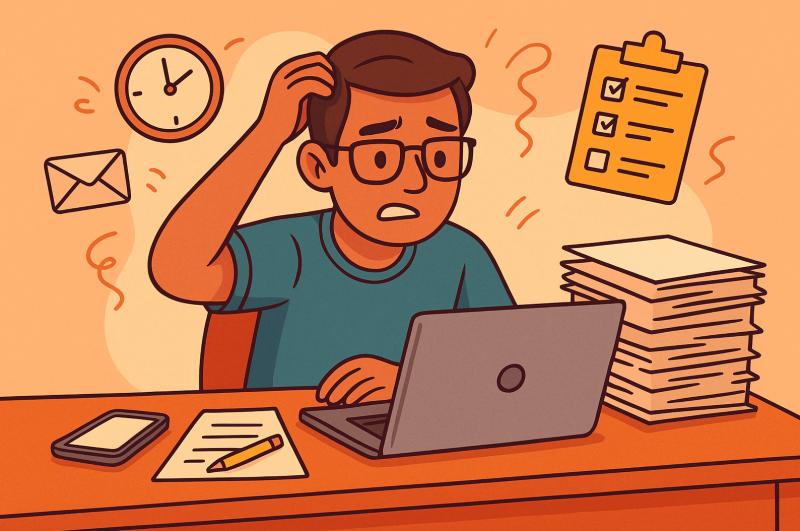
When panic or overwhelm sets in, music can help ground you. Discover how sound soothes the anxious mind and learn gentle ways to use music as a calming tool in stressful moments.
By Sergio Toledo
Editor-in-Chief, Heed to Heal
Introduction
When anxiety strikes — especially in the form of panic — it can feel like you’re floating outside of yourself. Your heart races, your thoughts spiral, and everything becomes too much. In these moments, we need something to anchor us. Something simple, reliable, and close at hand.
That’s where music comes in.
Music isn’t just entertainment — it’s a powerful emotional tool that can help bring you back to the present moment. Whether you’re having a full-blown panic attack or simply feeling emotionally overwhelmed, music can help quiet the chaos and guide you back into your body.
How Music Affects the Anxious Brain
Music engages multiple parts of the brain at once — memory, emotion, movement, and even the part responsible for regulating attention. When you listen to music during stress, you’re giving your brain a familiar, rhythmic structure to follow. This can help regulate your breathing and shift your focus from internal panic to external sound [1].
Research shows that listening to music can reduce levels of cortisol, the stress hormone, and increase dopamine, the “feel good” neurotransmitter linked to motivation and pleasure [2]. Even just 10–15 minutes of calming music can lower blood pressure and heart rate, which helps bring your nervous system out of “fight-or-flight” mode [3].
Grounding through Sound: How to Use Music in the Moment
If you’re prone to anxiety or panic, music can be part of your coping toolkit. Here are gentle ways to use it for grounding:
1. Focus on One Element of the Song
Pick a part of the music to zoom in on: the lyrics, the beat, or the rise and fall of the melody. This gives your mind a specific anchor to hold onto instead of spiraling thoughts.
2. Match the Music to Your Emotion, Then Shift
Start with a song that matches how you feel (tense, intense), then slowly switch to something calmer. This creates an emotional “bridge” that helps guide your body and mind into relaxation.
3. Use Familiar Songs with Emotional Safety
Certain songs carry a sense of comfort or nostalgia. They can remind you of safe places or people. These become like emotional blankets you can reach for anytime.
4. Try Lo-Fi or Instrumental Playlists
Sometimes lyrics can be too much during panic. Lo-fi beats, ambient music, or soft instrumental tracks can provide calm without overstimulation.
5. Make a Grounding Playlist in Advance
Curate a playlist specifically for tough moments. Include music that makes you feel grounded, soothed, or even empowered. Think of it as emotional first aid.
Music Is Always with You
One of the best things about music as a grounding tool is that it’s portable. Whether you’re in your car, at work, walking outside, or at home, you can access a song within seconds. That kind of immediacy makes music a powerful emotional support — even when no one else is around.
It’s not about “curing” anxiety with music — it’s about having something gentle and familiar to return to when the world feels loud and unmanageable.
Final Thoughts
Panic and emotional overwhelm can make us feel disconnected from everything, including ourselves. But music — even a single song — has the power to pull us back in.
If you’ve ever felt calmer after humming a melody, tearing up during a song, or closing your eyes to the beat of something familiar, then you already know: music remembers how to reach you, even when you forget how to reach yourself.
References
- Thoma, M. V., La Marca, R., Brönnimann, R., et al. (2013). The effect of music on the human stress response. PLoS ONE, 8(8): e70156. https://doi.org/10.1371/journal.pone.0070156
- Chanda, M. L., & Levitin, D. J. (2013). The neurochemistry of music. Trends in Cognitive Sciences, 17(4), 179–193. https://doi.org/10.1016/j.tics.2013.02.007
- Pelletier, C. L. (2004). The effect of music on decreasing arousal due to stress: A meta-analysis. Journal of Music Therapy, 41(3), 192–214. https://doi.org/10.1093/jmt/41.3.192
Originally published by Heed to Heal, 06.26.2025, under the terms of a Creative Commons Attribution-NonCommercial-NoDerivatives 4.0 International license.







